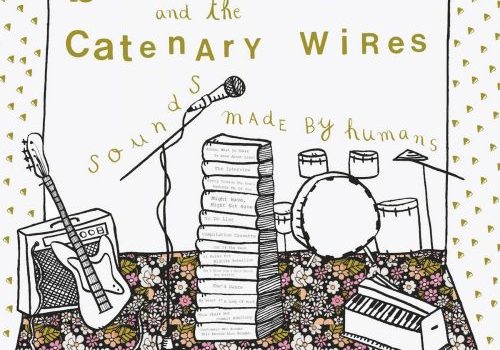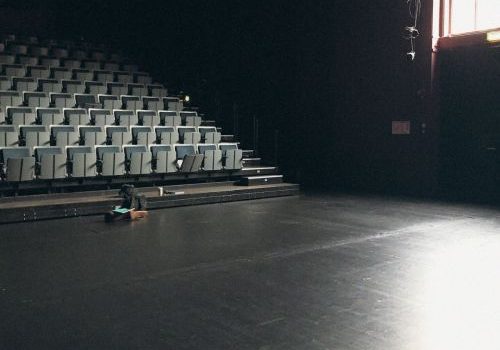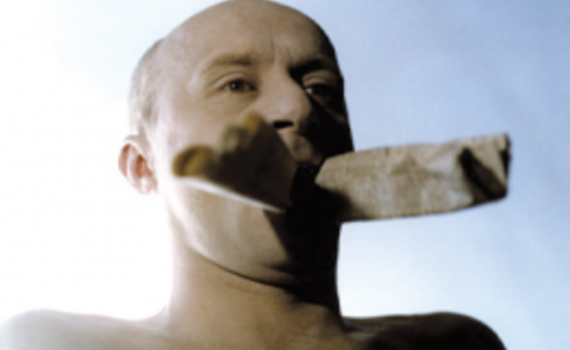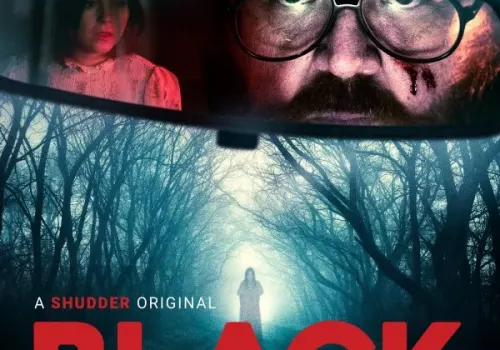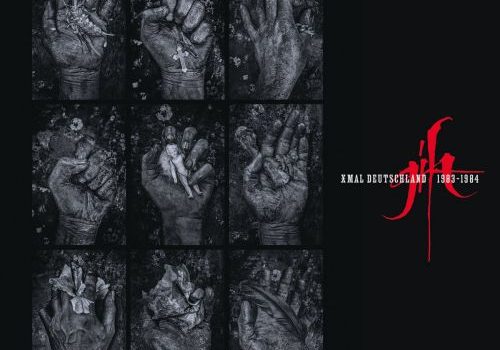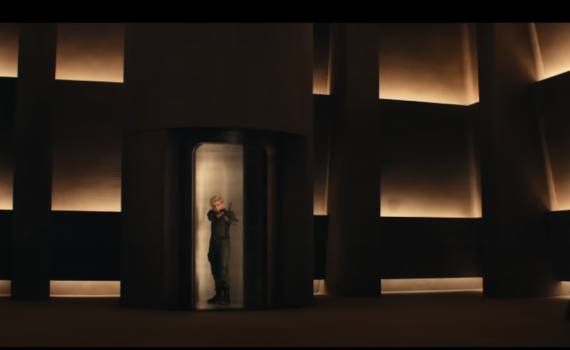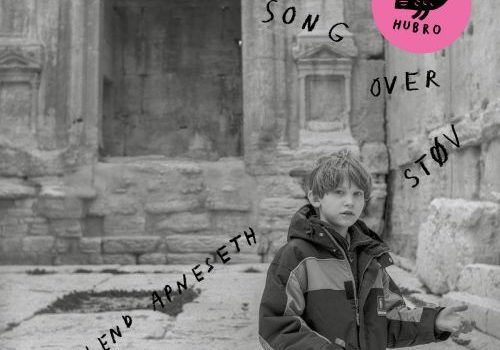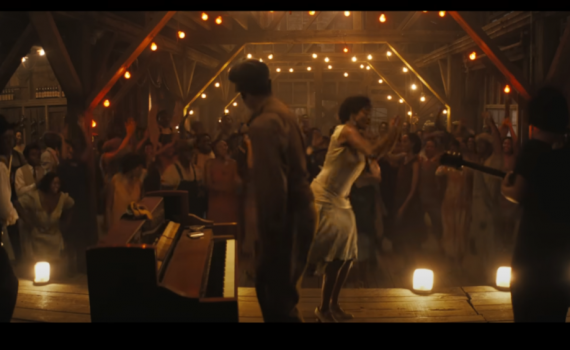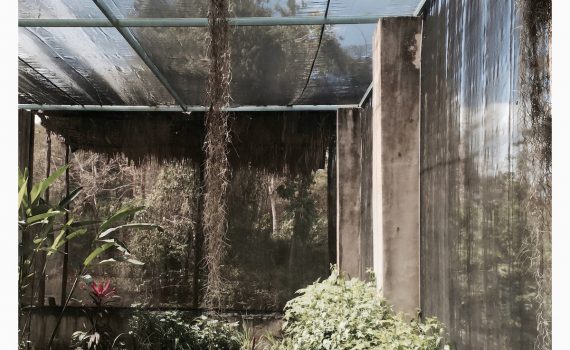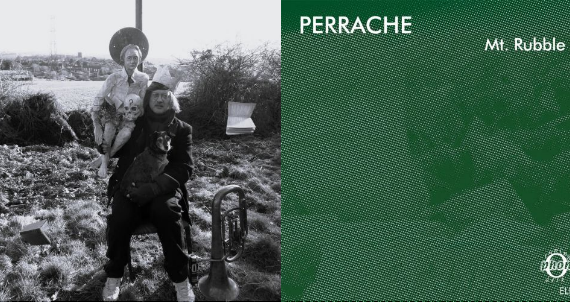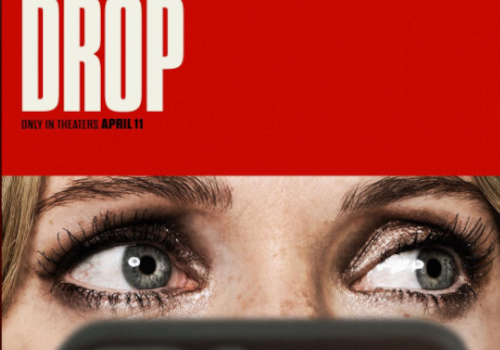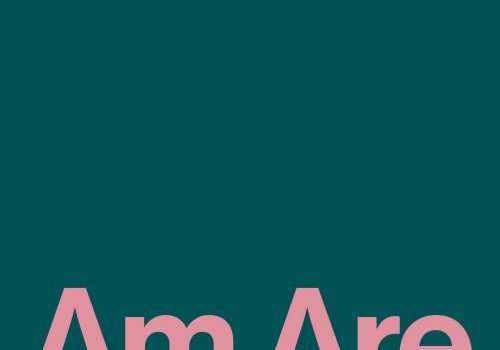Whilst on paper a collaboration between a successful modern poet (Brian Bilston) and an ensemble co-led by indie-pop veterans (Amelia Fletcher and Rob Pursey’s The Catenary Wires) might suggest a slightly unwieldy and ephemeral vanity side-project, in aural reality Sounds Made By Humans proves to be a deeply entertaining and durable product from the creative conjoining of like-minded souls.
Although the vocals erupt with an in-the-bag fury, the scuzzy guitars rife with distortion and dismay still exert a punky groove that sees the feet tapping. The thundering drums and heavy bass riffs try to protect the guitars as they are set alight, the riffs simple yet satisfying. They aren't afraid to allow a little air into the proceedings either and in places the vocals sound as if they were recorded in the rafters, which adds to a slight sense of discombobulation.
...it's a cracking year. There's a lot of trance. There's a dearth of too-slow cack. I think all the proper tropes of this century are in place. English is slipping from the position as language of choice for much of Europe, which doubtless reflects a belief in a new internationalism; or if nothing else, reflects the dogged incapacity of Europeans to imagine a world beyond liberal paralysis. It's got silly, it's got sad, it's got belters, it's got goths. It's the most wonderful time of the year. Happy gay Christmas, one and all.
a duo album that takes a laid-back look at some revisions of classics, as well as a few newly minted pieces. The selection of covers takes in Leonard Cohen, Pet Shop Boys and nineteenth century composer Alexander Fesca amongst others. The title of the album refers to the the names of the songs, with them either starting with "It Could" or "If I", and therefore it is an eclectic selection.
So I've been doing these wee previews for a while and there's always a faint sense, tickling in my head, that the Eurovision a person sees in Eurovision week isn't necessarily the whole of the thing. Because of course most countries have qualifying competitions. [...] Buoyed by this, I thought I'd go whole hog this year and see what the other competitions had to offer.
In taking the action away from Prague, where Meyrinck’s gothic horror takes place, Szulkin performs the neat trick of also bringing along another famous resident of that city -- Golem is as much Franz Kafka as it is Meyrinck, if not more so. Which seems a pretty obvious link to make given the subject matter, but he goes a bit deeper than that.
In this stylish but circuitous and needlessly complicated kidnap thriller, cuddly Nick Frost takes a sharp left turn away from his comedy origins and unearths his inner psychopath, as a taxi driver who may sound like a harmless cockney oaf, but who would give Travis Bickle a run for his fare.
Tocsin polished up the pared-down economy of Fetisch, broadened its expressive spectrum and increased its atmospheric pose. Producer Mick Glossop and engineer Felix Kendall did a great job of shifting the emphasis of Xmal Deutschland's sound, opening up the symphonic space and so elevating the drama. "Mondlicht"'s swooping dynamics are captivating, its pulmonary pull mining some grandiose theatrics as those heralding guitars unleash a siren spiral of voice, acidically rupturing, reined back in repeated refrains.
Marvel’s latest concoction sees a team of perfectly cast rogues, all of them at least vaguely familiar from supporting roles in prior movies and TV shows, taking on an impossible mission during which they can run, jump, punch, shoot, kick, stab and perhaps find their inner heroes along the way.
Erlend Apneseth's love of the Hardanger fiddle, Norway's national instrument, has led him on some spectacular journeys over the years. 2022's venture Nova found him exploring its evocative sounds on his own, ruminating on its harsh yet reflective tone. For the follow-up Song Over Støv, he has gathered a group of fellow travellers amongst whom are another three Hardanger players as well as another eight instrumentalists
The central cinematic thesis is that music is a mystical force that can be used either to heal or to harm. In this particular context the dichotomy goes from gospel, by which one can commune with God, to the blues, by which the guitar becomes a totem of the devil. It’s an idea as old as the Mississippi Delta, and allows the story to dig deep into the roots of African-American culture, by repurposing classic horror tropes and by the selective perversion of religious symbolism.
Kontra-Musik Both synthesiser specialist Andreas Tilliander and trumpeter Goran Kajfeš have been playing and recording for the best part of twenty-five years, so bring much experience and sensitivity to this unique collaboration. The album draws the two worlds of jazz and electronic ambience into one natural whole, and over eight submerged, cavernous tracks floats glimmering sparks and sultry smears of trumpet above an ever-evolving electronic soundscape. With track titles […]
Thanks to the more benevolent side of technological advances, recordings of a roaming and domestic provenance are no longer restricted to four-track strummers or those with the resources of rock royalty. Which, means there not many real limits upon those with advanced levels of imagination and ingenuity. As evidenced by the below divergent sonic dispersals.
"Single mum seeks cute, kind man with GSOH; let’s meet in penthouse restaurant for drinks, giggles and … MORE??" At least that’s how Violet hopes her evening will go, until ‘more’ turns out to be a mysterious text message revealing that her young son’s being held hostage and the only way she’ll get him back is to murder her rather promising date.
The title of the latest Am Are reflects 2022's Be Am, but is almost the antithesis of that light piano conversation with himself. Here, the ten tracks presented are made up of sessions with four different trios as well as a solo piece, a duo and a vocal track. It feels as though he has gone to the pub and it is filled with different groups of friends that are intent on different conversations, and he is flitting around like a social butterfly, dipping in here and dipping in there.
Recorded in Spain, away from their now globally-scattered homes, the group’s extended latter-day line-up, built around -- but not subservient to -- the long-running core membership of Jon Langford, Sally Timms and Tom Greenhalgh, have delivered an eclectic exemplar of well-matured musical mind-melding.
Perhaps because of other commitments, Behind Closed Doors is only her third album since 2014 and although coming from a place of loss and sorrow, still manages to sound uplifting and vivacious. The core quartet of violin, piano, bass and percussion is augmented across the seven tracks by vibes, trumpet, lute, oud and the resonant voice of Stratis Skarakis to ensure a varied and satisfyiong journey.
Using the likes of Hardanger fiddle, mouth harp and langeleik, the duo seems to have taken it upon themselves to take original recordings of these venerable pieces and manipulate them to their own ends, then thrusting them into a modern environment to see how they might exist amongst their younger siblings.
